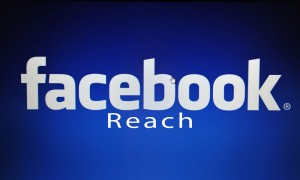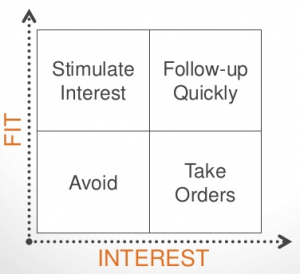
The Pokemon Go craze has been one of the bigger business stories of the summer. Nintendo’s longtime trading card and cartoon has become a mobile game phenomenon, an “augmented reality” experience that employs smartphones’ GPS and cameras to allow people (young and old) to search for Pokemon creatures.
The Pokemon Go app, developed by Niantic, has quickly became so popular that it has made odd headlines, including people getting into dangerous scenarios while playing. An animal shelter in Muncie, Indiana, smartly enticed gamers to walk their dogs while on their Pokemon quests.
And there are business lessons to be learned by the game’s success. Small businesses can find inspiration in its innovation, its use of mobile technology and simplicity for users. And perhaps most importantly, businesses can get a piece of the craze by enticing users into their stores.
Here’s a look at some of those lessons connected to Pokemon Go.
Get in on the game
For the uninitiated, there are marketing and revenue opportunities connected to Pokemon Go. Businesses can determine if they are in a “PokeStop” or “Gym” area in the game, which could attract players into a store or shopping area. As Walter Chen explains for Inc.com: “PokeStops and Gyms attract foot traffic without any effort — players flock to them for rewards and to battle other players — and they can be leveraged for massive sales if you know how.”
Businesses can set “lures” for Pokemon players, Chen says. These lures, purchased within the game, “increase the rate of Pokemon generation in the area around the PokeStop where they’re placed for one half hour.” This method is “an insanely powerful tool that you really have to see to believe,” he writes, and he includes comments from business owners about successful usage of the lures, as quoted on Reddit threads:
- “We did this last night (college town), and within minutes of dropping the lure, 30 people walked in.”
- “I own a pizzeria that’s a Pokestop and I literally did this all day. I had a ton of kids and adults (mostly adults) come in for a slice of pizza and a drink until the lure ran out.”
Branding
Connecting to a powerful brand can give a business a major boost. In a story for Inc.com, Melissa Burns explains that the Pokemon game is built around another location-based game called Ingress, also developed by Niantic, though players likely don’t realize it.
“Ingress has been around for three years, but have you ever heard about it? Probably not, unless you are very much into this kind of thing,” she writes. “Pokemon, however, is a brand that has been steadily developed for the last twenty years and is easily recognized even by those who never played any of its games or watched the anime.”
Make it easy
Innovation doesn’t have to mean complex and difficult. Small businesses looking to develop an interactive product should keep the importance of simplicity in mind. As Burns says, “The easier it is to learn, the higher its retention rate.”
“Pokemon Go doesn’t have any tutorials, manuals or instructions, but it simply underlines the fact that one can simply pick it up and start playing,” she explains. “The aforementioned Ingress is a much more complicated and, perhaps, more interesting game — but you have to invest considerable time into it to fully enjoy it.”
The power of mobile
Small businesses that have yet to branch out to mobile technology should pay attention to Pokemon Go’s influence. It’s common for consumers to make purchases by phone or tablet, so for businesses that haven’t added mobile to their web presence, it is long overdue. Madhusudhan Gurumurthy examines the game’s mobile trailblazing for Entrepreneur.
“They built a product that delivers a unique experience by tapping into the unique capabilities of mobile — location, camera, hi-res graphics. The app was not perfect. It has had multiple glitches (Gmail security concerns on iOS, scalability challenges), but was strong enough to catch the attention of millions of users. … It’s a pretty cool illustration of lean product development, testing ideas quickly and iterating to a product that is truly powerful.”
Alternative currency
Mobile games have long employed techniques to entice users to spend real money on the artificial kind featured in the game. Though these purchases aren’t required, they can advance and enhance the playing experience. As John Brandon writes for Computer World, Pokemon Go is a big step forward in this revenue-based innovation.
“We’ve seen this many times before but not at this level of intensity,” he writes. “You can pay $ 100 in actual cash for 14,500 coins to use in the game. That’s intense. And, many people are doing exactly that without blinking. It could usher in the age of alternative currency in a legit way, and that’s a major benefit to companies working on exchange technology or have anything to do with BTC [bitcoins].”
Healthy hype
Trendy products, toys and games come and go — think Beanie Babies, Furbies and Guitar Hero — and some fizzle out quicker than others. Small business owners who stay connected to business trends can pick up on the next phenomenon on the front end and create revenue opportunities. Brandon writes that he believes the Pokemon popularity will eventually slow down, but that it will “change gaming.”
“And, I happen to think it is a fun diversion for any age group, not just kids,” he says. “Yet, the real lesson is that Pokemon Go shows that real trends appear overnight and you can capitalize on them. That might mean luring in customers, or maybe realizing that trends fuel interest which fuels revenue, and that’s OK — it’s how the world works.”
Advertising and marketing
Businesses that are experienced in selling products online may take a particular interest in the innovation involved in Pokemon Go. As Gurumurthy explains, its success goes beyond the normal online purchasing process.
“Pokémon Go illustrates an elegant way to simplify this flow by literally walking consumers to the door steps of physical locations while keeping them engaged in their quest for monsters,” he writes. “There is an incredible array of things Nintendo can now do with this app — from a pure user experience standpoint and from the advertising/monetization angle. … The best part for marketers: advertising is fitting seamlessly into consumers’ lives and adding value instead of interrupting their tasks. It’s experiential marketing at its finest.”
Business & Finance Articles on Business 2 Community(33)






